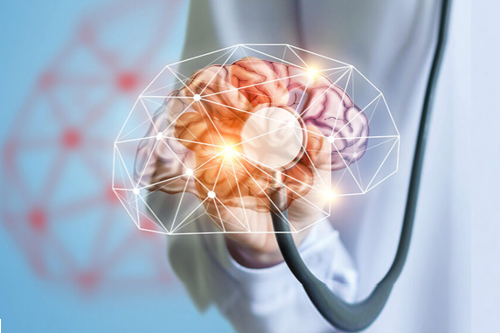
Neurology
Neurology in Nagpur Neurology is the medical specialty that involves the study, diagnosis, and treatment of disorder related to the nervous system. This usually includes the brain, spinal cord, and nerves. Neurologists are thus trained to diagnose and treat any condition affecting these body parts.
The late 19th century was a time of tremendous discovery regarding the nature of aphasia and epilepsy and the neurological aspects of issues with motor problems. Still, much of what had been discovered regarding the brain and nerve functions came from animal studies and, later, microscopic observation of nerve cells.
What Is a Neurologic Symptom?
Due to its extensive control over so many aspects of the body, neurological symptoms develop from disorders involving any part of the nervous system, and therefore produce numerous varied effects. Thus, These symptoms can lead to effects on such diverse areas as pain, muscle function, sensation, special senses, sleep, consciousness, and cognitive ability.
- Common neurological symptoms include:
- Pain symptoms:
- General pain, back pain, neck pain, headaches
Following the pathways of the nerves for example, in the case of sciatica or shingles
Problems with Muscle Function:
- Muscle weakness or tremors
- Paralysis and involuntary movement such as tics
- Abnormal gait, clumsiness, coordination
- Muscle spasms, rigidity, stiffness, spasticity
- Slow movement
Sensory Changes:
- Numbness or tingling
- Super sensitivity to touch
- Decreased sensitivity to touch, temperature, or pain
- Decreased proprioception (spatial awareness)
Changes of Special Senses:
- Loss of olfaction or taste
- Visual changes including hallucinations, partial or complete loss of vision or double vision
- Hearing loss or tinnitus
Some key areas of neurology include:
- Neurological Disorders: Stroke, epilepsy, Alzheimer’s, Parkinson’s, multiple sclerosis (MS), and migraines.
- Symptoms: Headaches, dizziness, memory loss, seizures, muscle weakness, numbness, and difficulty walking.
- Diagnostic Tools: MRI, CT scans, EEG (electroencephalogram), EMG (electromyogram), and lumbar punctures.
- Treatment Options: Medication, lifestyle changes, physical therapy, and surgery.
Common Neurological Disorders:
- Stroke: Disruption of blood supply to the brain causing brain cell death.
- Alzheimer’s Disease: A progressive condition affecting memory and cognition.
- Parkinson’s Disease: A neurodegenerative disorder affecting movement.
- Multiple Sclerosis (MS): A condition where the immune system attacks the protective covering of a nerves.
- Epilepsy: A disorder causing recurrent seizures.
- Migraines: Severe headaches with associated symptoms like nausea or light sensitivity.
Symptoms of Neurological Disorders:
- Memory loss
- Headaches or migraines
- Seizures
- Muscle weakness or paralysis
- Sensory disturbances (numbness, tingling)
- Speech and coordination problems
Neurological Diagnostics:
- MRI (Magnetic Resonance Imaging): Provides detailed images of the brain or spinal cord.
- CT Scan: Uses X-rays to create cross-sectional images of the brain.
- EEG (Electroencephalogram): Measures electrical activity in the brain, commonly used for a epilepsy diagnosis.
- EMG (Electromyogram): Tests the electrical activity of muscles.
- Lumbar Puncture: Analyzes cerebrospinal fluid for infection or neurological diseases.
Treatment in Neurology:
- Medication: For managing symptoms like seizures, pain, or spasticity.
- Surgery: For conditions like brain tumors or severe epilepsy.
- Physical Therapy: To help regain motor function after neurological injuries.
- Lifestyle Changes: Managing risk factors like hypertension for stroke prevention.
What procedures do neurologists perform?
Neurologists use a number of tests and treatments to diagnose and manage neurological disorders:
Lumbar Puncture: This is the first procedure that uses the spinal fluid; such procedures are designed to diagnose conditions like meningitis, encephalitis, spinal cord inflammation, leukemia, autoimmune diseases, multiple sclerosis, dementia, or brain bleeding. It may be also utilized in the administration of treatments directly into the spinal cord, including anesthetics, antibiotics, or medications for cancer.
Electromyography (EMG): EMG is the measure of the muscle’s response to electrical stimulation from its motor neurons. For an EMG, small needles called electrodes are inserted into the muscle to record electrical activity during movement and at rest. This test is used to diagnose neuromuscular diseases such as myasthenia gravis and ALS. It is usually performed in conjunction with a NCV, which measures nerve activity in response to electrical stimulation.
Electroencephalogram EEG-An electroencephalogram measures and records the electrical activity of the brain. Electrodes attached to the scalp pick up electrical impulses from neurons in the brain. This is how conditions like epilepsy, seizures, brain tumors, sleep problems, and coma are diagnosed.
Tensilon Test: It is a test specifically used for the diagnosis of a very rare neuromuscular disease called myasthenia gravis. The Tensilon works as a drug that enhances muscle movement by preventing the breakdown of a particular neurotransmitter, acetylcholine. Injection of it into the bloodstream leads to an improvement in the strength of the muscles after the injection indicating the presence of myasthenia gravis.
At our Neurosys Multispeciality Center, we perform several key procedures including Craniotomy, which is primarily for the excision of brain tumors; V-P Shunt Surgery for treating hydrocephalus; surgeries for epilepsy; and operations targeting brain stem glioma. Beyond these, we offer a range of other neurosurgical services. If you have any questions that are not answere, please contact us through our Contact Us or Book your Appointment.
